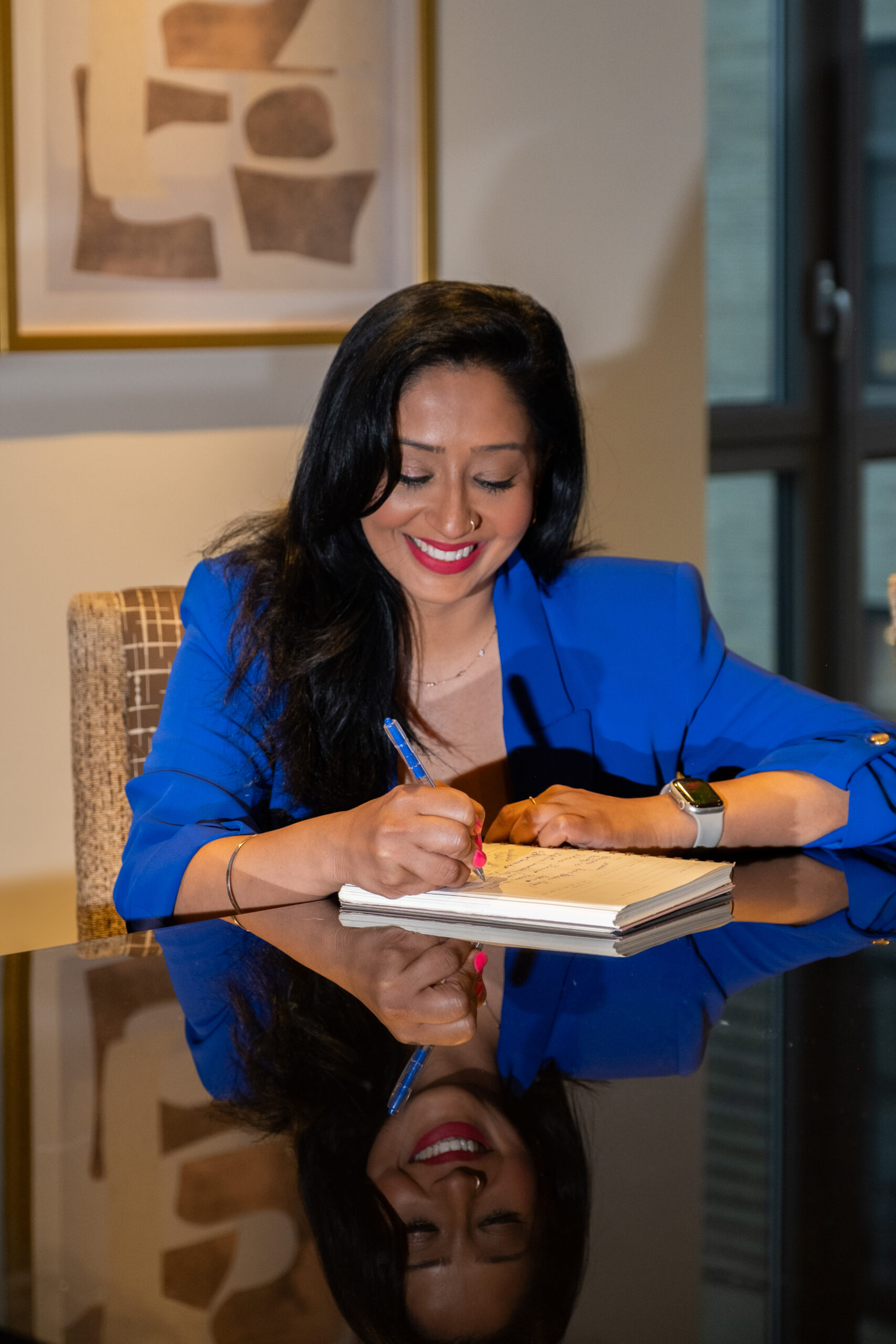The Confidence Crisis: Why You Feel Like Everyone Else Has It Figured Out
“How come everyone else seems to have it figured out while I’m the only one struggling?”
If this thought has crossed your mind – whether you’re staring at a blank resume, walking into a new workplace, or sitting in a classroom feeling completely lost – you’re not alone. That gnawing voice of self-doubt whispers the same cruel lies to millions of people every single day: “You’re not smart enough,” “You don’t belong here,” “Everyone can see you’re faking it.”
But here’s what nobody talks about: building confidence isn’t a natural talent. It’s not something you’re born with or without. Confidence is a skill, built like a muscle through repetition, reflection, and deliberate celebration of your wins – no matter how small they seem.
The people who appear to have unshakeable confidence? Most of them started exactly where you are right now. The difference isn’t that they were naturally gifted with self-assurance. The difference is that they learned the system for building confidence systematically, and they practiced it until it became second nature.
Why Building Confidence Feels So Hard
The Comparison Trap That Keeps You Stuck
You scroll through LinkedIn and see former classmates landing dream jobs. You sit in meetings where colleagues speak with authority about topics you’re still learning. You watch other students raise their hands confidently while you question whether your thoughts are even worth sharing.
The spiral always starts the same way: “Why am I so dumb? Why is this easy for everyone else?”
Here’s the truth that will set you free: most people who look confident are either faking it, leaning on arrogance, or have practiced the confidence-building exercises/rituals long enough that they’ve become automatic.
Understanding the Confidence Spectrum
There’s a crucial distinction between arrogance and confidence – they exist on the same spectrum but at opposite ends. Arrogance stems from insecurity and the need to prove yourself. True confidence comes from a quiet knowing of your worth, built on a foundation of evidence and self-awareness.
When you’re young or new to any environment, you don’t have the “stack of wins” to pull from yet. You haven’t accumulated the proof points that naturally confident people lean on. This is normal. This is expected. And most importantly, this is temporary.
Everyone starts from a place of insecurity. The question isn’t whether you’ll experience self-doubt – it’s what you’ll do when it shows up.
The Confidence Cycle: A Proven System for Building Unshakeable Self-Assurance
Building confidence in life, work, and school requires a systematic approach. Here’s the five-step cycle that transforms self-doubt into lasting confidence:
Step 1: Recognize the Self-Doubt When It Arrives
The first step to building confidence is developing awareness of your inner critic. Notice when those familiar thoughts creep in:
- “I’m not qualified for this.”
- “I don’t belong here.”
- “Everyone is smarter than me.”
- “I’m going to embarrass myself.”
Don’t try to suppress these thoughts – acknowledge them. Self-awareness is the foundation of confidence-building. You can’t change what you don’t recognize.
Step 2: Challenge the Story Your Mind Is Telling
Once you notice the self-doubt, pause and ask yourself critical questions:
- “Is this actually true?”
- “Do I have evidence to the contrary?”
- “What would I tell a friend who shared this fear with me?”
Pull in concrete evidence: feedback you’ve received, compliments from colleagues or professors, moments when you felt proud of your accomplishments. Your mind tends to focus on failures and forget successes – deliberately redirect it toward your proof points.
Step 3: Reflect on Proof and Stack Your Wins
This is where most people fail at building confidence – they don’t keep track of their victories. Start maintaining a running list of accomplishments, both big and small:
- The presentation that went better than expected
- The exam you studied hard for and passed
- The colleague who thanked you for your help
- The project you completed ahead of the deadline
- The difficult conversation you navigated successfully
Self-reflection is fuel for confidence. Without deliberately cataloging your wins, your brain defaults to focusing on what went wrong instead of what went right.
Step 4: Celebrate Deliberately and Share Your Wins
Here’s where many people get stuck: they’re afraid of appearing arrogant or boastful. But there’s a massive difference between bragging and sharing wins authentically.
Bragging comes from insecurity and aims to diminish others. Sharing wins comes from joy and inspires others to celebrate their own victories.
Ways to celebrate deliberately:
- Share updates in family group chats
- Tell trusted colleagues about your successes
- Journal about what you’re proud of
- Acknowledge team wins even when others don’t
- Create a culture of celebration around you
When you celebrate others’ wins, you create an environment where celebration becomes natural and reciprocal.
Step 5: Repeat to Build the Confidence Muscle
Think of confidence like physical fitness – one workout won’t transform your body, and one moment of self-celebration won’t create lasting confidence. But consistent practice over time creates a remarkable transformation.
Each time you complete this cycle, you’re building the muscle. What once felt impossible – speaking up in meetings, applying for stretch roles, presenting to large groups – becomes second nature through repetition.
The goal isn’t to eliminate self-doubt entirely (that’s impossible and would actually be problematic). The goal is to develop a reliable system for quickly overcoming doubt and accessing your confidence when you need it most.
Personal Story: “Who Am I to Be a Coach?”
Let me share a personal example of this confidence-building cycle in action. When I started my career concierge service, that familiar voice of self-doubt showed up immediately: “How can I be a career coach if I wasn’t a Chief Executive? Who am I to guide others when I’m still figuring things out myself?”
I was completely discounting 15 years of HR experience, countless conversations where I’d guided colleagues through career transitions, and the natural coaching skills I’d been developing for years. I was ignoring my stacked wins.
The turning point came when I started implementing daily celebration rituals. I began sharing wins – both personal and client victories – in my family group chat. I started acknowledging the expertise I’d built through years of experience, even if it didn’t come with a fancy title.
I realized that confidence isn’t about having the perfect credentials or the most impressive title. Confidence comes from showing up consistently, doing the work, and owning the value you bring.
There’s something called “delusional confidence” that’s actually necessary for growth. You need to believe you can do something before you have all the evidence that proves you can. This isn’t arrogance – it’s the faith required to take the next step toward your goals.
Overcoming the Cheerleader Problem: What If You Don’t Have Support?
“But what if my friends and family aren’t supportive? What if I don’t have cheerleaders in my life?”
This is a real challenge many face when building confidence. Here’s your solution: become the change you want to see.
Start being the cheerleader for others. Celebrate your colleagues’ wins. Acknowledge your classmates’ successes. Send congratulatory messages when people in your network achieve something meaningful.
Building your personal “Board of Directors” is crucial for confidence-building. These are people who:
- Cheer you on during victories
- Challenge you to grow
- Hold you accountable to your goals
- Remind you of your strengths when you forget
If you don’t have these people in your life yet, start cultivating these relationships. Be the person you wish you had in your corner for others, and watch how reciprocity creates the support system you need.
Remember: celebrating team wins at school or work, even when no one else acknowledges them, positions you as a leader and creates positive momentum for everyone involved.
The Power of “Delusional” Confidence
Every successful person has at least one area where they started with what others might call “delusional confidence” – believing they could achieve something before they had proof they could do it.
Maybe it was:
- Starting a business with no guarantee of success
- Applying for a role they weren’t fully qualified for
- Pursuing a degree in a challenging field
- Learning a new skill that seemed impossible at first
- Taking on a leadership role without prior experience
This isn’t actually delusion – it’s faith backed by willingness to do the work. It starts as a belief, grows through practice, and eventually transforms into recognition and results.
Question for reflection: Where in your life have you been “delusionally confident” and then actually pulled it off? What did that teach you about your capabilities?
Now apply that same mindset to the areas where you’re currently struggling with confidence. The process is the same – believe, practice, improve, repeat.
Your Confidence Building Action Plan
Building confidence in life, work, and school isn’t about eliminating self-doubt – it’s about developing a reliable system for moving through doubt and accessing your strength when you need it most.
Here’s your starting point:
- Notice when self-doubt shows up (without judgment)
- Challenge the story with evidence-based questions
- Stack your wins by keeping a running list of accomplishments
- Celebrate deliberately and share wins authentically
- Repeat the cycle until it becomes automatic
Remember: everyone experiences self-doubt, including the people who seem most confident. The difference isn’t the presence or absence of doubt – it’s what you do when doubt appears.
Confidence isn’t a destination you reach once and stay at forever. It’s a practice, a skill, and a choice you make daily. Some days will be easier than others, and that’s completely normal.
Ready to Stop Playing Small?
If you’re tired of letting self-doubt hold you back from the career, opportunities, and life you want, it’s time to take action. Building confidence requires more than just understanding the concepts – it involves implementation, accountability, and often, professional guidance.
My coaching is specifically designed to help ambitious professionals and students stop playing small and start building the kind of confidence they can rely on – not just for today, but for every challenge and opportunity that comes their way.
Through personalized career coaching, resume optimization, LinkedIn strategy, and comprehensive job search support, I help clients build confidence through action and results because nothing builds confidence like seeing proof that you can achieve what once seemed impossible.
Ready to transform your relationship with confidence?
I’d love to hear your story if this blog resonates with where you are right now. Share your thoughts in the comments, send me a message with your questions, or explore how Eunioa can help you navigate your next chapter with clarity and confidence.
Visit: https://eunioa.io/career/
Book a free strategy call: calendly.com/rosey-singh-eunioa/free-strategy-call
Follow us on LinkedIn: www.linkedin.com/company/eunioa
Don’t let job search isolation derail your career goals. Your next opportunity is waiting, and with the right support, you’ll find it faster than you think, improve, and explain.
Building confidence is a journey, not a destination. Every step forward – no matter how small – is progress worth celebrating.






